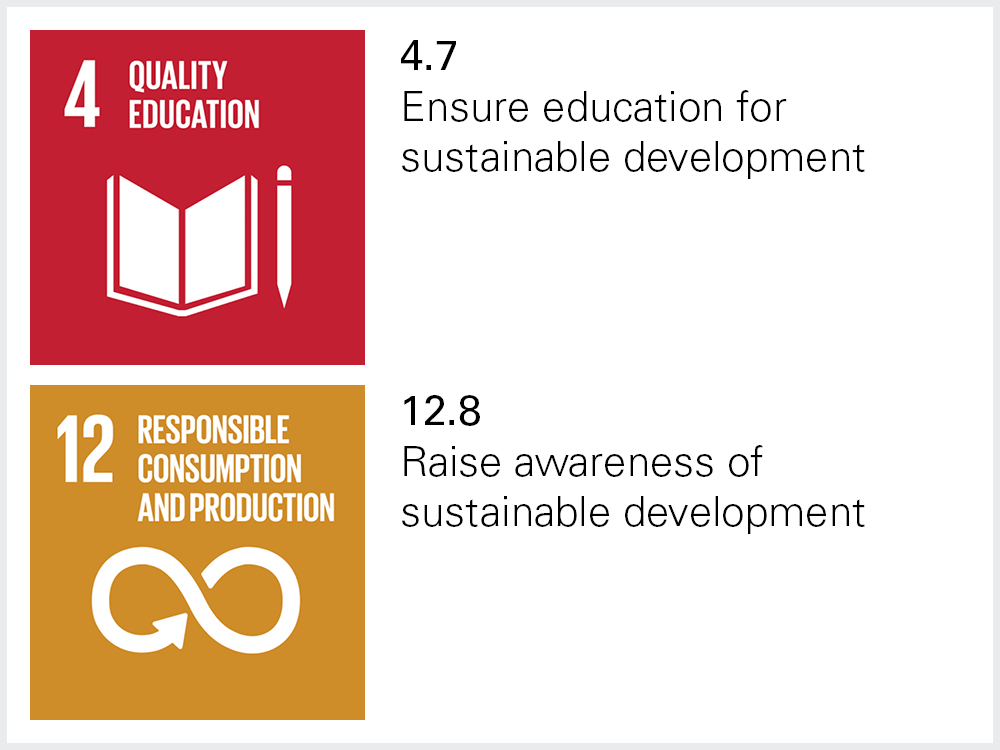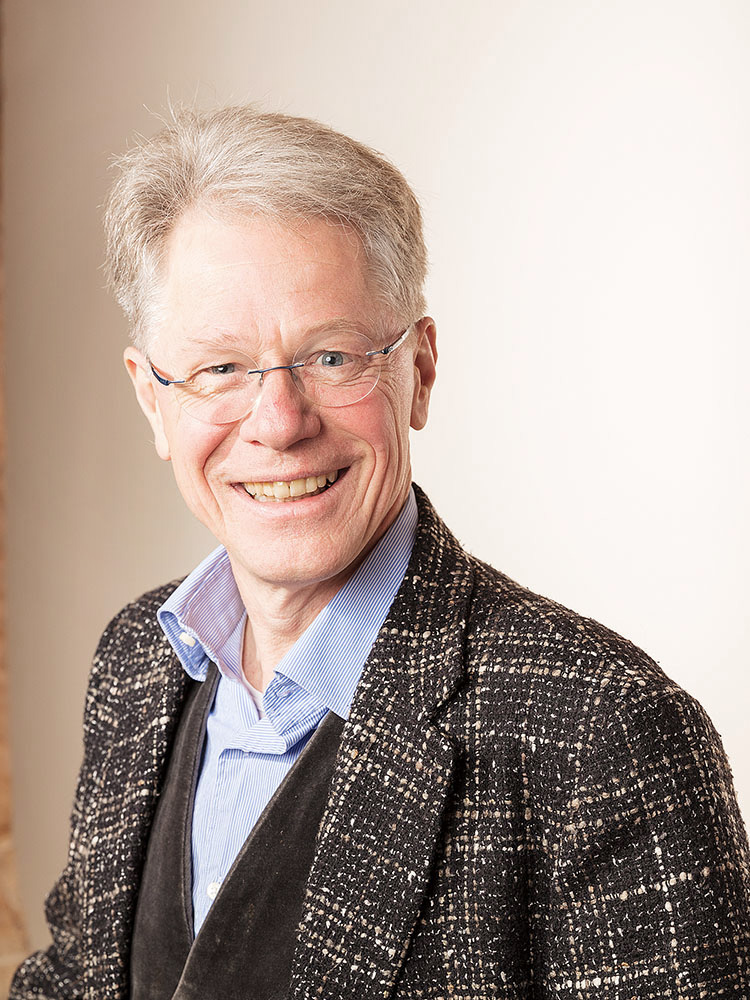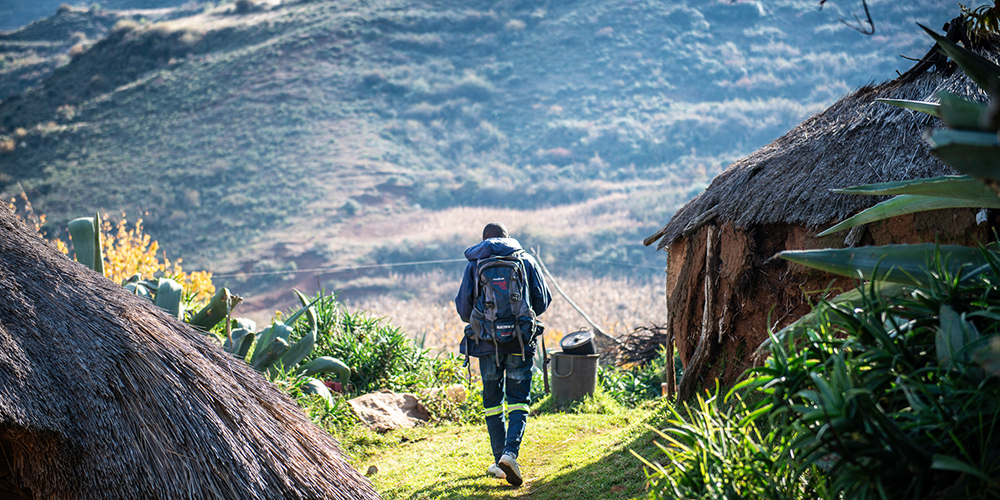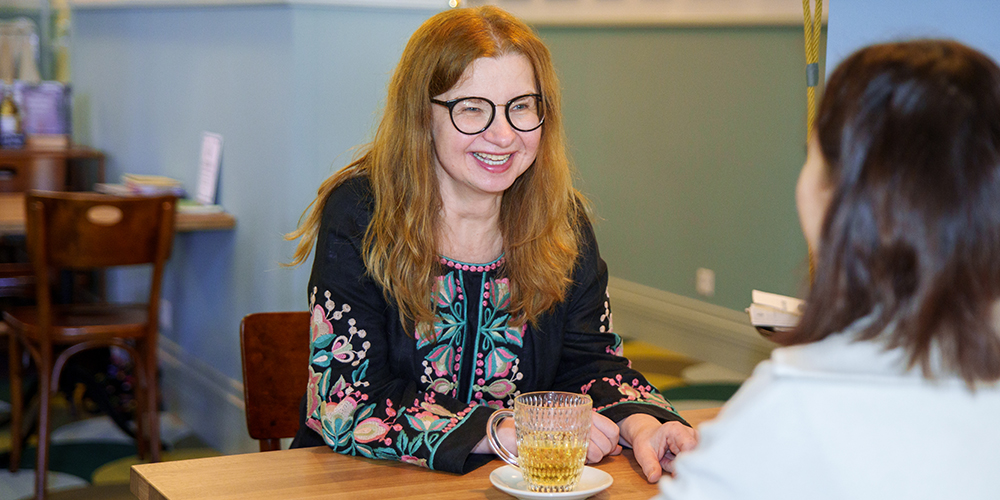Teaching
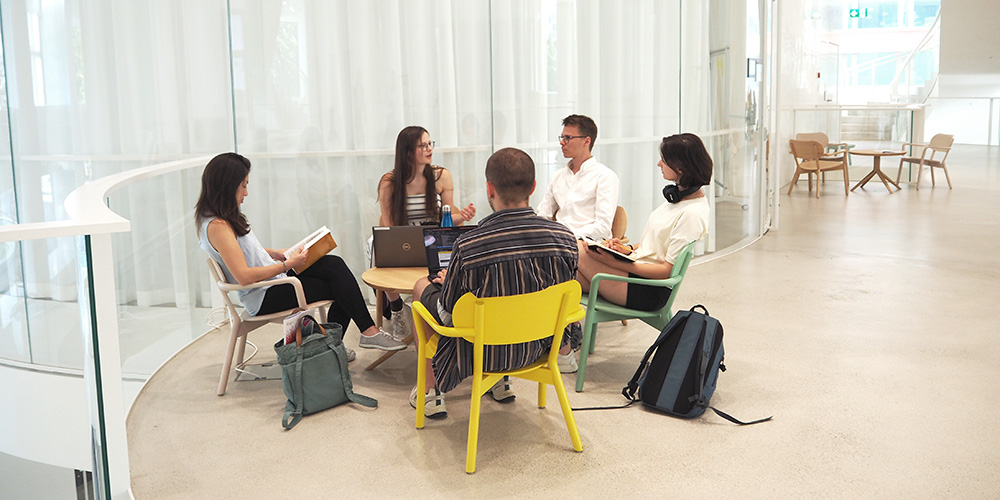
Sustainability plays a key role in teaching at the University of Basel. Besides the study programs related directly to sustainability, students also had the opportunity to explore sustainability related questions in two lecture series and project-based IMPULS courses. A Faculty of Medicine initiative will provide students with the opportunity to work more intensively with the topic of “planetary health” in coming years.
Lecture series focused on sustainability
A lecture series entitled “Societal challenges of climate change” took place in the fall semester 2021. Ethical and social challenges created by climate change were examined from a variety of perspectives in seven lectures. Topics included civil disobedience, animal ethics and theology in connection with climate change. A lecture series in fall 2022 was dedicated to the topic of “Digitalization and Sustainability.” Twelve experts from the University of Basel and elsewhere focused in six lectures on the connections between digitalization and sustainability, bringing in perspectives from economics, computer science and sociology.
“Planetary Health” as a theme in medical training
The topic of “planetary health” is a new focus throughout the entire human medicine curriculum. "Planetary health" recognizes the interactions between humans, animals and the environment. The increasing health effects created by global environmental changes caused by humans are a major focus. The climate crisis is widely regarded as the greatest single health threat of the 21st century. Expert researchers, the Office of the Dean of Studies, the Faculty of Medicine and students therefore came together to develop a planetary health curriculum. The curriculum is first being incorporated into the Bachelor’s program (beginning in fall semester 2022) and then the Master’s program. In addition to a few new courses, the contents are largely integrated into existing courses and are linked thematically. The topic can be studied in more depth in the elective offerings, e.g., in projects on sustainable nutrition and health or on the reduction of emissions and resources in hospital operations. The high demand for this events proves that sustainability is a topic of great interest to medical students.
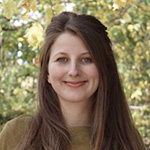
Doctors are regarded with a high level of trust by the population at large. By discussing the connections between environmental destruction and health problems in conversations with patients, in hospitals, or in political discourse, they have the ability to promote the kind of societal transformation that is needed to improve the climate and environmental crises.
Francine Müller, Sustainability Project Coordinator in the Faculty of Medicine
IMPULS support program
Since 2019, IMPULS has supported teaching staff (in all disciplines at the University of Basel) who want to integrate sustainability-related topics into their courses and organize student projects. The projects are developed by students based on the course topic and in collaboration with internal and external organizations. In the period from spring 2021 until fall 2022, 14 courses were funded. Numerous students developed and implemented projects through December 2022. IMPULS is run by the Sustainability Office and supported by funding from U Change (Swiss Academies of Arts and Sciences) and the University of Basel.
Master's Degree in Sustainable Development
In the Master's Degree in Sustainable Development (MSD), the University of Basel offers a specialist degree program anchored in three faculties. The design of the master’s program, which is taught entirely in English, supports exchange across disciplinary borders and opens students’ eyes to matters of sustainable development around the world. The years 2021 and 2022 saw higher enrollment numbers (86 students) than in prior years.
MSD
67
59
49
56
61
78
86
86
Small program "Pathways to Sustainability" for students in all disciplines
As part of their elective credit requirements, students from the third semester onwards are able to enroll in the "Pathways to Sustainability"1 program. Four courses explore diverse sustainability perspectives using the example of nutrition with a focus on practical applications. A certificate is awarded on successful completion of the coursework. There was a drop in the numbers of participants in 2022 compared to 2020 and 2021. However, numbers were consistent with prior years.
A: Perspectives of Natural Sciences on Sustainability
28
33
27
26
26
44
44
28
B: Perspectives of Social Sciences on Sustainability
42
39
24
24
31
39
45
22
C: Perspectives of Economics on Sustainability
-
16
9
8
10
21
12
10
D: Interdisciplinary Approach to Sustainability
-
7
9
6
6
23
6
9
A sustainable footprint in teaching and research
2022 was Prof. Paul Burger’s last year at the University of Basel before his retirement in spring 2023. As the co-director of the Master’s Degree in Sustainable Development, he taught more than 200 courses on sustainable development since 2005 and, together with his colleagues, led over 300 students to successful completion of the Master’s program.
He served as director of the Sustainability Research Group beginning in 2006, making tremendous contributions to sustainability research. He focused on theoretical requirements and conditions as well as empirical possibilities and limitations of transformation processes aimed toward sustainability.
Teaching and cooperation across borders
In connection with the tri-national university partnership “Eucor – The European Campus”, students from the University of Basel, the University of Freiburg and the Karlsruhe Institute of Technology have had the opportunity, since the fall semester 2022, to earn an Eucor certificate in addition to the regular sustainability certificate. Since 2022, the University of Basel has also been associated via the Eucor partnership with the European university alliance EPICUR, in which it cooperates with nine European universities in the areas of teaching and doctoral training. One focal point of the cross-border collaboration is the development of teaching formats that demonstrate interdisciplinary approaches to sustainability topics and promote cross-cultural reflection on paths to developing sustainable societies.
Online programs
Multiple open online courses offer students from the University of Basel and other universities, as well as interested members of the public, the opportunity to further explore research focusing on sustainability-related topics in an international environment. For example, the following two courses were offered in 2021 and 2022:
Goals & actions
Make sustainability-related courses more visible and easier to find
Catalog all courses related to sustainability; label all courses related to sustainability – with updates each semester – and improve the search function in the central course directory
Sustainability Office
Student Services
Successfully implement the IMPULS program for sustainability in teaching
Continue IMPULS funding for teaching staff with at least three courses per semester. Formulate a concept for further development and continuation post-2025
Sustainability Office
Increase the number of students attending sustainability-related courses, especially for elective credits
Create an interactive online “Sustainability” course (Tales) providing an introduction to sustainability in light of the Swiss energy transformation
New Media Center
Research network Sustainable Future
Sustainability Office
Further development of expertise among lecturers in to the area of sustainability & Sustainable Development Goals
Continue and further develop continuing education course offerings for university teaching staff; offer at least two courses per year
Sustainability Office
Increase the number of students attending sustainability-related courses, especially for elective credits
Improve communications, in particular by the Transfaculty Cross Section Program Sustainable Development, e.g. via UniNews, social media, etc.
Sustainability Office
TQNE Leadership
[1] TQNE: Transfakultäres Querschnittsprogramm Nachhaltige Entwicklung (Transfaculty Cross Section Program for Sustainable Development)

